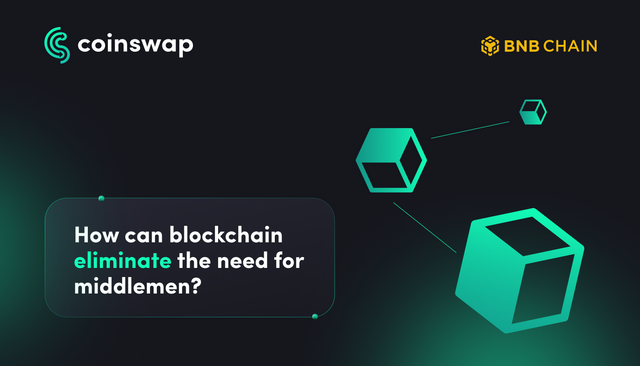How Blockchain Can Eliminate the Need for Middlemen

Blockchain technology, often associated with cryptocurrencies like Bitcoin, has transformative potential beyond digital currencies. One of its most compelling applications is the elimination of middlemen in various industries. This revolutionary technology can streamline processes, reduce costs, and enhance security through its decentralized nature. Here’s how blockchain achieves these benefits. 🚀
Transparency and Trust 🌐
Blockchain’s decentralized ledger ensures transparency in transactions. Each transaction is recorded on a public ledger, and visible to all participants. This transparency reduces the need for intermediaries to verify and approve transactions, as every party involved can independently verify the authenticity and history of transactions. This fosters trust among participants without the need for a middleman to mediate. 🤝
Reduced Costs 💰
Middlemen, such as brokers, agents, and banks, typically charge fees for their services. Blockchain technology can significantly reduce or even eliminate these fees. By using smart contracts—self-executing contracts with the terms directly written into code—transactions can be automated and processed without the need for a middleman. This automation not only speeds up the process but also reduces costs associated with intermediaries. 🏦➡️🔗
Enhanced Security 🔒
Traditional systems rely on centralized databases, which are vulnerable to hacking and fraud. Blockchain, however, is inherently secure due to its decentralized nature and cryptographic algorithms. Each block in the chain contains a hash of the previous block, making it nearly impossible to alter past transactions without altering subsequent blocks, which would require the consensus of the majority of the network. This security feature reduces the reliance on middlemen to ensure transaction integrity. 🔐
Speed and Efficiency ⏱️
Transactions involving middlemen can be time-consuming due to the need for verification and approval processes. Blockchain technology accelerates transactions by enabling peer-to-peer interactions. For example, in the financial sector, cross-border payments can take days to process through traditional banks, whereas blockchain can facilitate near-instantaneous transactions, 24/7. 🏦➡️💸
Real-World Applications 🌍
- Finance: Decentralized finance (DeFi) platforms use blockchain to offer financial services like lending, borrowing, and trading without traditional banks.
- Real Estate: Blockchain can streamline property transactions by recording them on a public ledger, reducing the need for brokers and legal intermediaries.
- Supply Chain: Blockchain can track products from manufacture to delivery, ensuring transparency and reducing the need for third-party verification.
Conclusion 🌟
Blockchain technology is poised to revolutionize industries by eliminating the need for middlemen. Its ability to enhance transparency, reduce costs, increase security, and improve efficiency makes it a powerful tool for the future. As more sectors adopt blockchain, we can expect a significant shift towards more decentralized and efficient systems. 🚀🌐